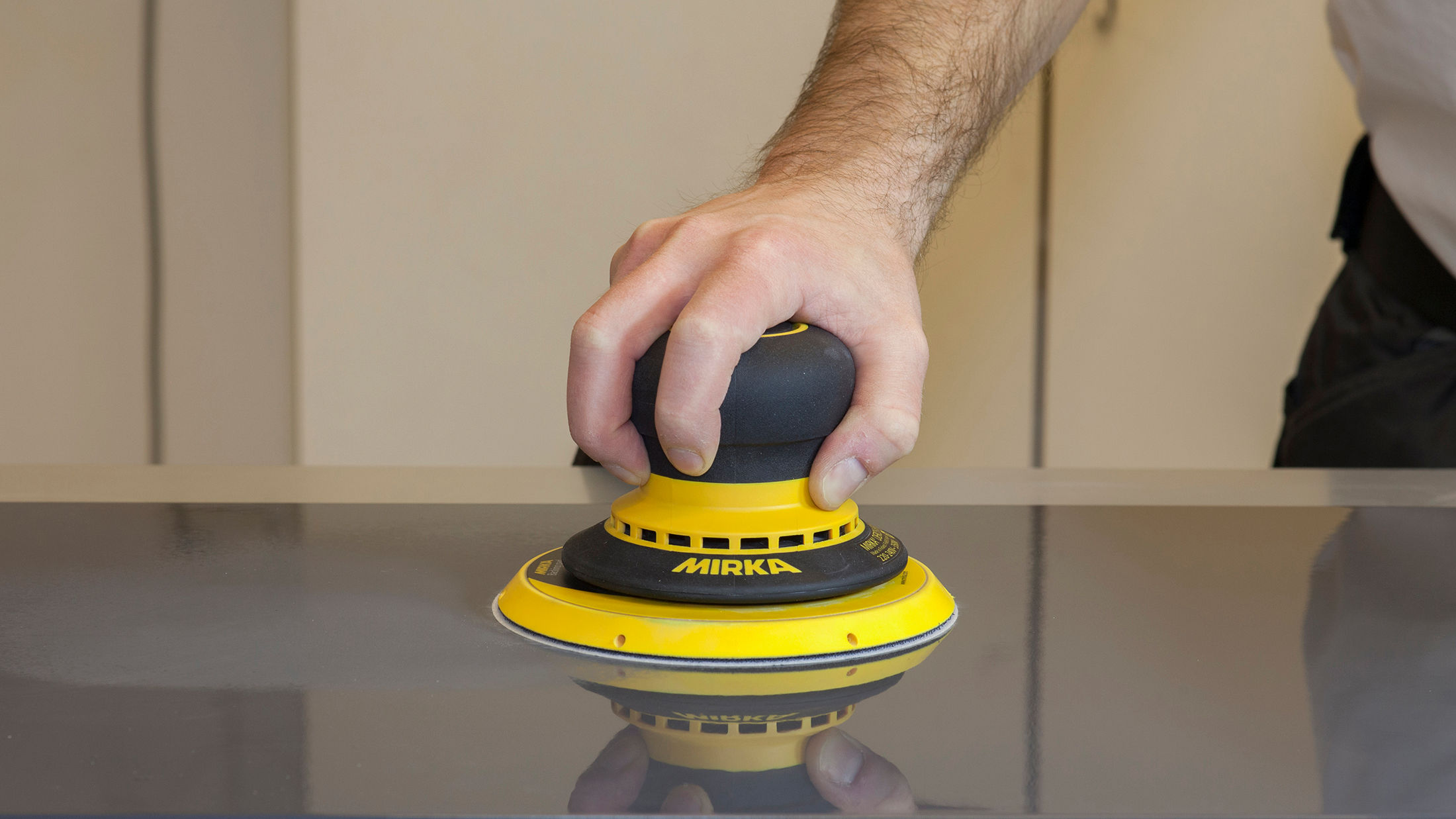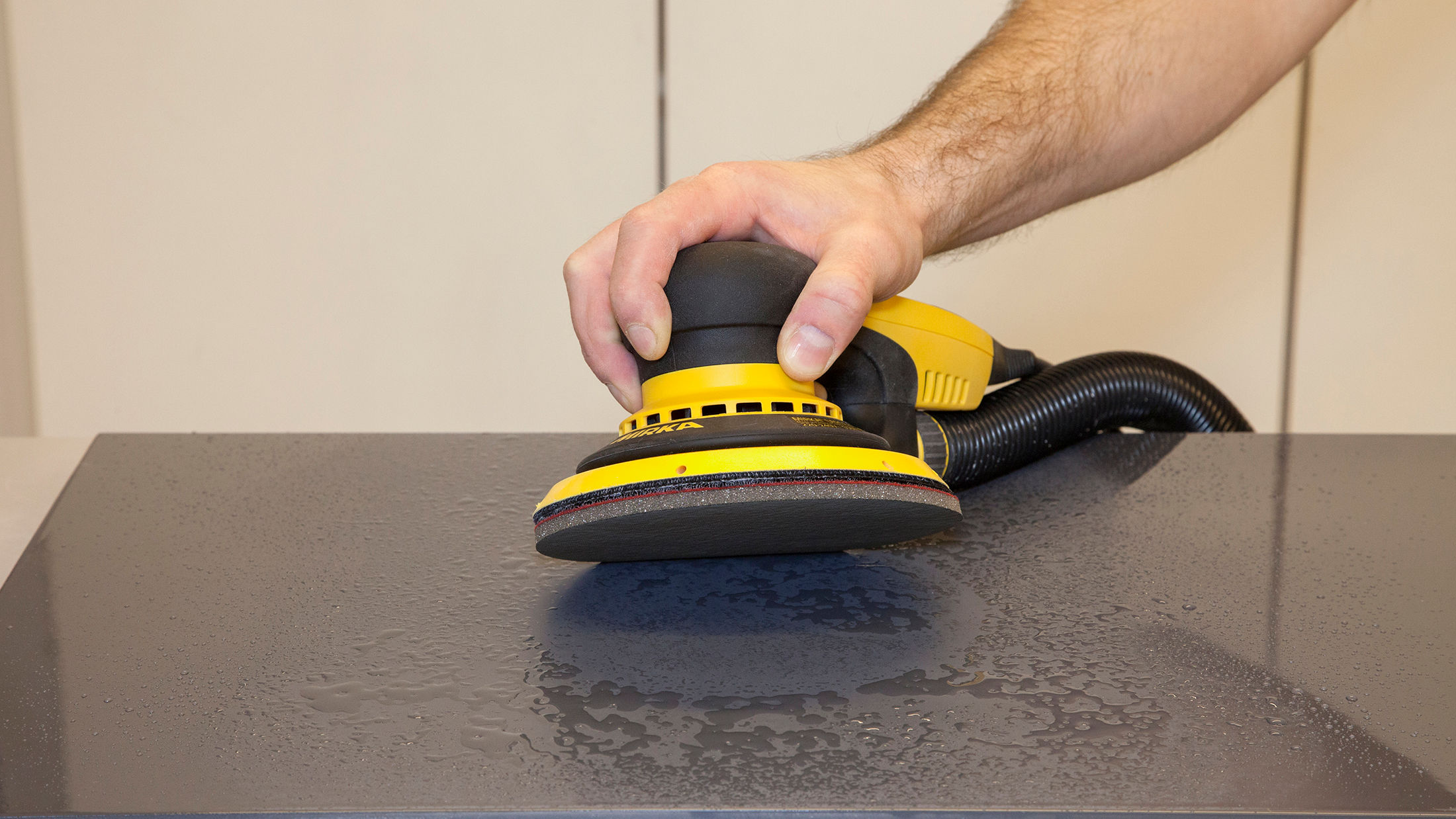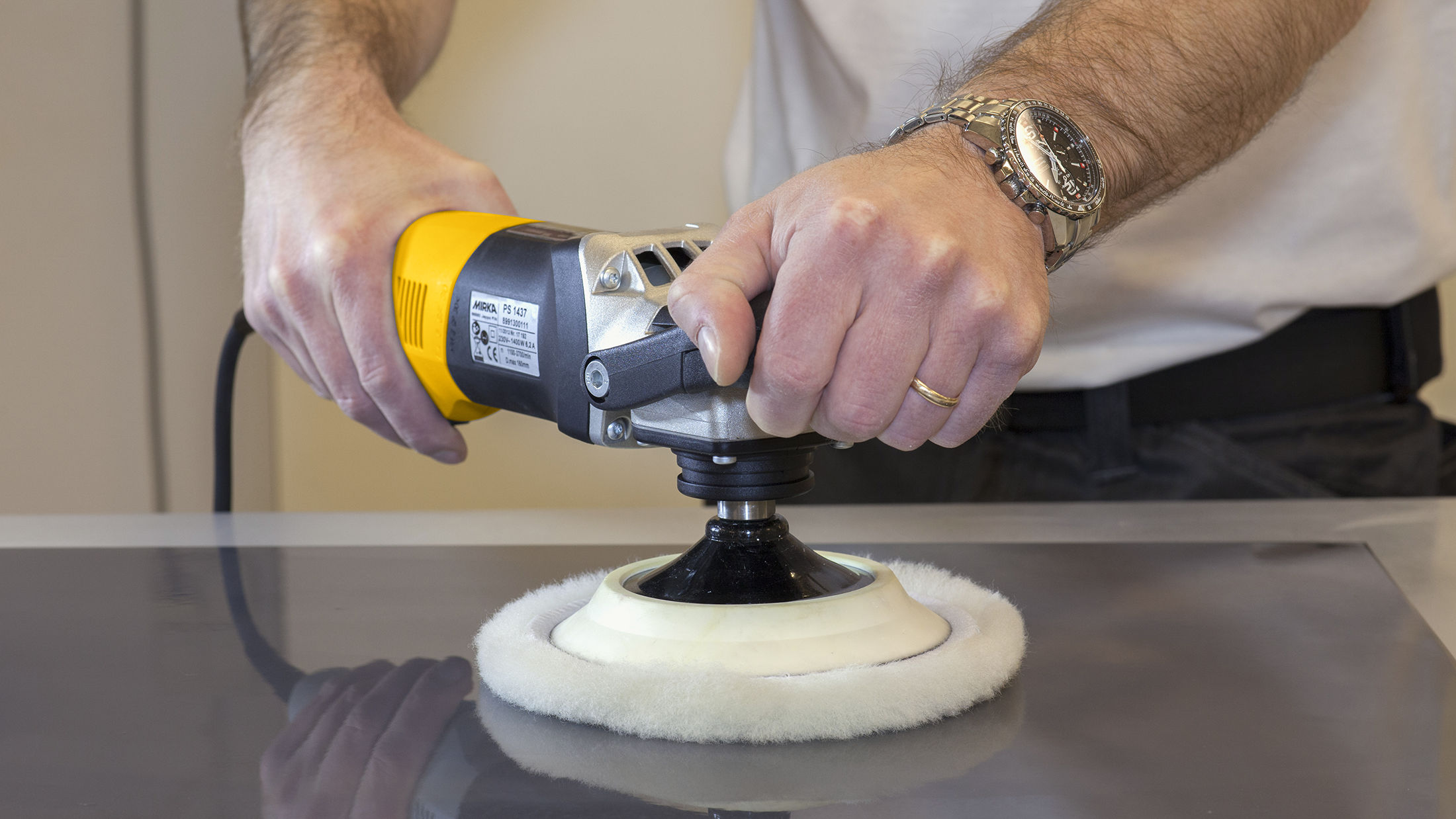Register Your Tool
All Mirka power tools have a standard two-year warranty. Get an additional 1 year of warranty free of charge by registering your tool within 30 days of purchase.
Keep your tools in excellent shape on myMirka where you can register your tools.
Replenish your stock, access marketing materials, view sales guides and read about upcoming product launches.
To remove scratches and imperfections, sand the surface with a Mirka® DEROS electric sander and Microstar® P1200 abrasive until the surface is completely matte. If there is heavy orange peel, sand the surface with Abranet Ace P1000.
Switch to damp sanding with Abralon® P3000 (make sure both abrasive and surface are wet). To protect the sander and dust extraction system from moisture, turn off the dust extractor or use Mirka Vacuum Block Disc.
Make sure the surface is completely sanded, then wipe it off with a microfiber cloth.
Polish the surface with Polarshine® 10 and lambswool pad.
For an even deeper gloss, polish a second time using Polarshine® 10 and a yellow waffle polishing pad (optional step).
High Gloss Process on Wood
Stay informed and inspired with exclusive updates
Discover surface finishing solutions, tips, and the industry trends - for professionals like you.
A better choice for you and the environment
All polishes that Mirka produces are water-based and produced in Finland. There are many benefits of choosing a water-based polishing compound.


